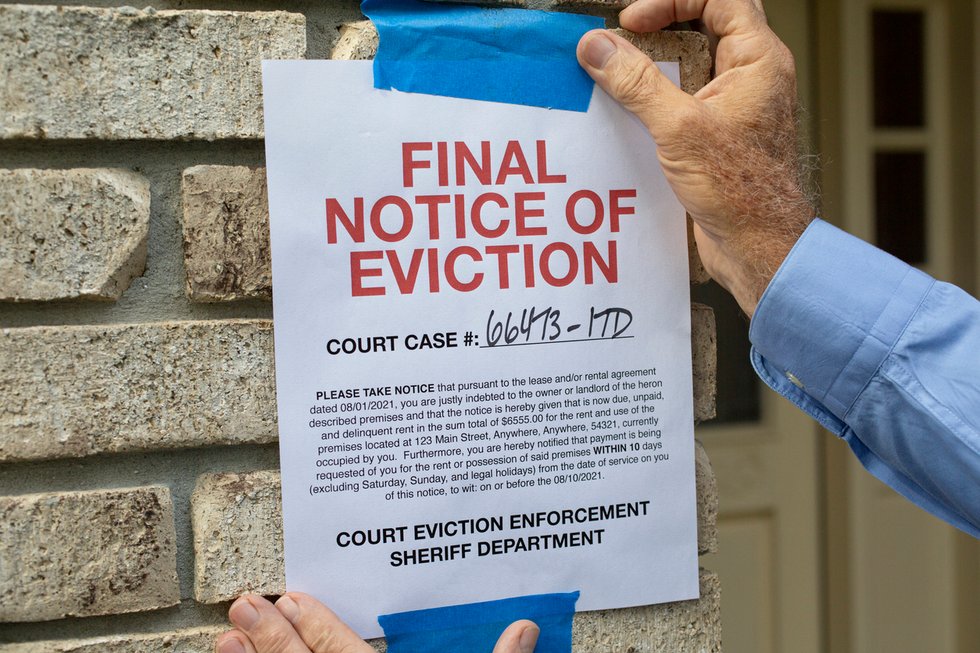Curious if Arizona is a rent control state? Read our latest blog post to learn about current rent control laws and regulations in Arizona.
Is Arizona a Rent Control State?
With the proper support, you can confidently navigate the challenging and intricate world of property management. This issue examines Arizona’s rent control laws and regulations, establishes whether Arizona is a rent control state, and discusses the highest increase that is legal.

Whether you’re an experienced real estate investor or just getting started, come along as we break down the complexities of Arizona’s rent control system and provide you with the knowledge you need to manage your assets and adhere to the law effectively.
Rent Control Laws in Arizona
Understanding Arizona’s rent control rules is essential if you are a landlord or investor and want to manage your rental properties effectively and by local laws. This section will provide a general review of Arizona’s rent control legislation and how it can affect your investment in rental properties.
It is crucial to understand that Arizona is not a state with rent control in the first place. The Arizona Residential Rent Control Preemption Act, approved in 2000, forbids local governments from establishing rent control policies on residential properties. This law guarantees that market forces govern rental rates in Arizona, allowing landlords and property owners to establish rental rates in accordance with supply and demand.
However, this does not mean that there are no rules or regulations governing rent increases in Arizona. The state does have specific requirements regarding increase notices for tenants. According to the Arizona Residential Landlord and Tenant Act, landlords must provide written notice of a rent increase at least 30 days before the proposed effective date for month-to-month rental agreements. For leases with a fixed term, such as six months or one year, rent increases can only be implemented upon lease renewal, and the new rental rate must be specified in the lease agreement.
Arizona does have additional tenant protection legislation in place, even if it does not have rent control laws. Landlords aren’t allowed to punish renters for exercising their rights, such as filing a complaint about the state of the rental or joining a tenant’s group. Unjustified rent hikes or eviction threats are examples of retaliatory acts.
 In addition, discrimination in housing based on race, color, national origin, religion, sex, familial status, or disability is illegal under the Fair Housing Act, a federal statute. In Arizona, landlords must abide by these federal laws and ensure that fair housing principles are followed while determining rental prices and taking care of their homes.
In addition, discrimination in housing based on race, color, national origin, religion, sex, familial status, or disability is illegal under the Fair Housing Act, a federal statute. In Arizona, landlords must abide by these federal laws and ensure that fair housing principles are followed while determining rental prices and taking care of their homes.
Despite the absence of rent control legislation in Arizona, landlords and investment owners must be cognizant of the rules governing rent hikes and tenant safeguards. You can ensure effective administration of your rental properties, prevent conceivable legal conflicts, establish a good connection with your renters, and safeguard your assets by remaining aware and abiding by the law.
Maximum Rent Increase Allowed in Arizona
Landlords and investors in Arizona must be aware of the restrictions and rules governing rent hikes. Although Arizona doesn’t have rent control and no set limits on rent increases, there are still some guidelines that landlords must adhere to state laws and keep their renters happy. The maximum rent increase permitted in Arizona will be covered in this section, along with tips on changing rental prices effectively.
As previously indicated, Arizona does not impose a precise restriction on rent increases, giving landlords the freedom to determine prices depending on the market’s state and the property’s worth. However, this independence entails adhering to rules and giving renters enough notice before enacting a rent increase.
The following rules apply to rent increases in Arizona:
- Written notice: Tenants must get written notification from landlords before rent increases occur. Landlords must give tenants in month-to-month leases at least 30 days written notice. Rent increases for fixed-term leases must be included in the lease renewal at the lease’s expiration and are only applicable then.
- Reasonable frequency: Although there isn’t a set restriction on how frequently rents can increase, landlords should avoid doing so. The landlord-tenant relationship may be strained by excessive rent hiking resulting in increased vacancies as tenants look for more inexpensive housing choices.
- Fair housing laws: Landlords must comply with Arizona’s fair housing laws, ensuring that rent increases are not discriminatory. Tenants cannot be targeted for rent increases based on race, color, national origin, religion, sex, familial status, or disability.
When considering a rent increase, landlords need to take the following factors into account:
- Market conditions: Research the local rental market to understand the going rates for comparable properties. This can help ensure that your rent increase is in line with market trends and not excessive.
- Property improvements: If you have made significant improvements or upgrades to your property, a rent increase may be justified. Be prepared to communicate these improvements to your tenants and explain the reasons for the rent increase.
- Tenant retention: Remember that maintaining good relationships with your tenants is essential for long-term success. Consider whether the rent increase is worth the potential risk of losing a reliable tenant.
Although Arizona has no maximum rent increase limit, landlords must follow state laws and industry standards when raising rents. Hiring a property management company will help you manage your properties successfully, foster goodwill with your renters, and ensure compliance with Arizona’s rental rules.




